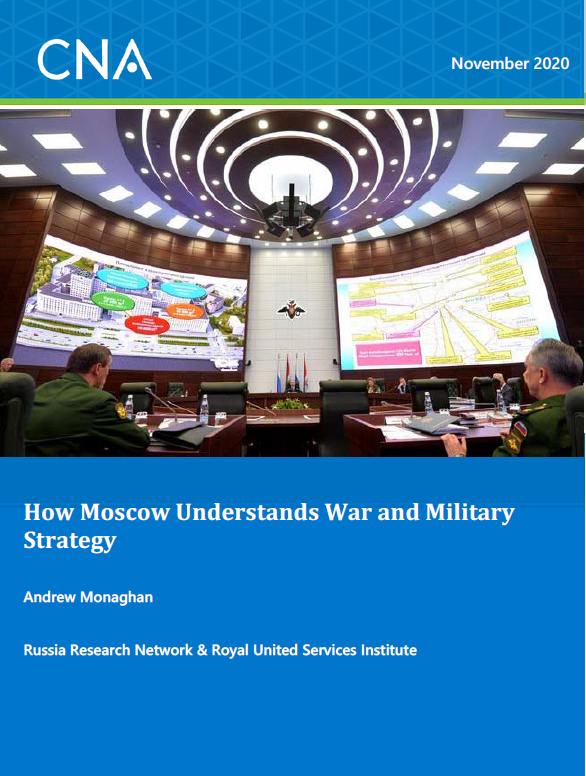Since the mid 2010s, the Russian leadership has conducted an in-depth debate about both the changing character of war and the nature of modern military strategy. This sustained debate offers an opportunity to reassess our understanding of Russian thinking and activity at a time when Russia is understood to be an adversarial actor in a new era of great power competition. Moscow has also conducted its own wider update of strategic planning and forecasting, looking to the 2030s and beyond. It also envisages a great power competition as powers vie for access to resources, and this influences the debate about contemporary and future war. Russian military strategy is based on three arcs: an arc tracing the line through Russian history to foresight and the future of war; an arc through state policy and statecraft to military operations; and an arc through the conduct of war from the depth of one state’s strategic rear to the strategic rear of the enemy.
The implications for Western thinking go to the heart of the current debate about Russia in a time of global power competition. First, while many Western observers point to Russian measures short of war, or tactical-level questions, the current Russian discussion serves to highlight the role of armed force as a central element of Russian military strategy. Second, it is time to move beyond thinking of Russian activity as blurring the lines between war and peace and towards thinking of it as blurring the lines between the offensive and the defensive.
Download reportDISTRIBUTION STATEMENT A. Approved for public release: distribution unlimited. 11/17/2020
Details
- Pages: 30
- Document Number: IOP-2020-U-028629-FINAL
- Publication Date: 11/17/2020
